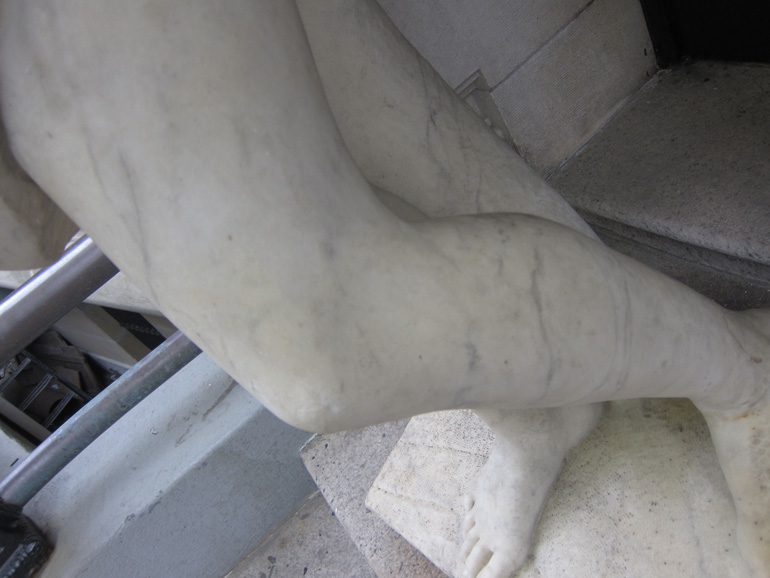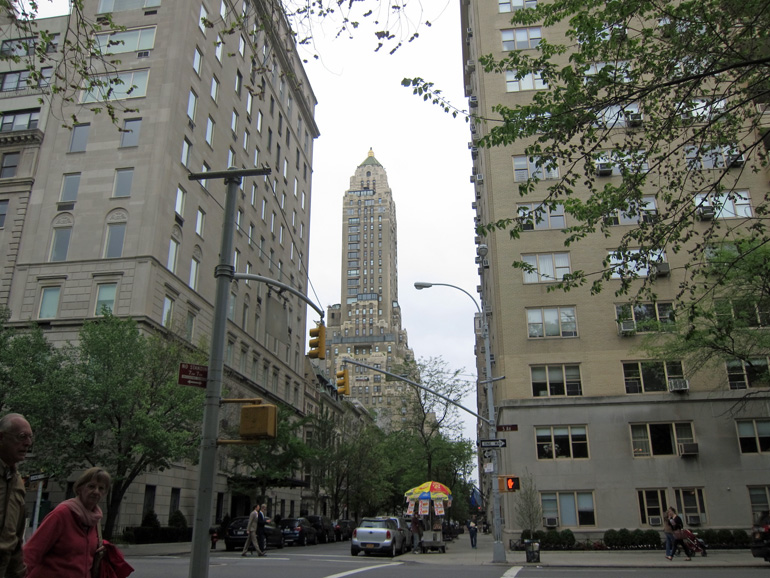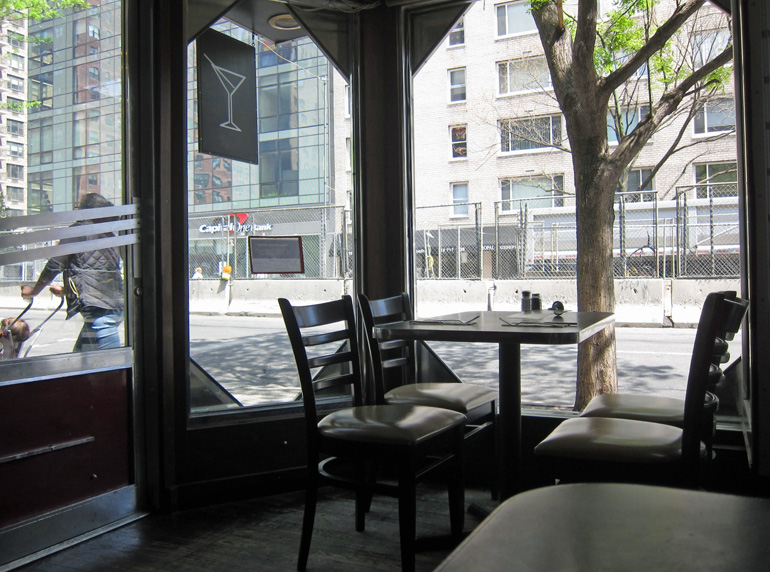Gotham Diary:
The World and Meaning
30 May 2014
Friday, May 30th, 2014
There is only one Earth, but there are many worlds — at the finest grain, as many worlds as there are people. These worlds, however, differ only in detail, and most of us live in worlds that are largely shared with the people around us. All worlds contain a mixture of concrete monuments — shrines, churches, public buildings — impalpable conventions, and, the case of “advanced civilizations,” hybrids of the concrete and the impalpable (such as, for example, the novel). Each world also contains a civil society that supports and preserves it; without this support and preservation, the world collapses, leaving only ruins — the Roman Forum, Angkor Wat.
Civil society is comprised of individuals, and for most individuals there is only one world, the one in which they are born and raised.
It is in the nature of a healthy child to take the world for granted, to become familiar with it without understanding it. It is not necessary to understand the world in order to live in it. But it is necessary to understand the world in order to improve it. The individual who ceases to take the world for granted, and who instead considers its inequities and injustices, must not only imagine a better way of ordering the world but also understand the world as it is, and why it is, in order to assure that the improvement will take root, and actually put an end to injustice. The alternative is to upset the world with violence, and to hope for the best. While I should argue that worlds generally, especially in the West, have grown more humane over the millennia, the ratio of attempted improvements (planned or violent) to successful improvements is not inspiring. The most powerful argument in the quiver of those whose mentality we currently call “conservative” is the observation that most attempts at improvement fail.
Since the Industrial Revolution, the world has developed a new vulnerability. In earlier times, the usual reason for the withdrawal of civil society’s support for the world was military defeat. In the world of the modern Westerner — American or European — military defeat can be matched by ignorance, incompetence, and inattentiveness. Our world is made up of more delicate materials than stone monuments and ageless traditions. There is no correlative for the sheer mass of pollution-spewing factories or industrial farms in the pre-modern world.
The World into which anyone was born prior to the Industrial Revolution was local, and ringed by unknowns. There were few permanent material structures, and conventions, while wrinkled with complexities, developed a high degree of local autonomy. Control from outside the locality was sporadic and even capricious. In the Middle Ages, everything was given a Christian rationale. But this universalizing trend, while palpable in the upper reaches of hierarchy and power, did not register at the local level. Prelates might travel (indeed, few people traveled more), but hardly anyone else did.
At the beginning of the modern age — a zone stretching from the Black Death of the discovery of the New World — the rich began to gravitate away from their localities and toward the courts of powerful princes. From these courts issued almost all of the secular cultural institutions that underpin the culture of the modern West: styles of architecture and types of buildings; organs of government; academies of science and the arts; the arts themselves, including literature; and, perhaps most important of all, good manners. (It is in our manners, however hypocritically practiced, that the stamp of Christianity is most clearly seen.) With unprecedented wealth and power at their disposal, these courts reached deep into the localities and began a process of social homogenization that is still ongoing. At the zenith of the Sun King’s reign, Versailles was the center of the world, not only for ambitious Frenchmen but for emulating princes elsewhere. An earlier version of everything that we associate with “culture” could be experienced at Versailles.
Unfortunately, the center of this world of Versailles was not an institution but a mere mortal, and when Louis XIV died, his world collapsed. If Louis had been supported by his people (as he was, sometimes grudgingly), it was Louis himself who supported and preserved Versailles. He made it up as he went along, and he shaped it to suit his very personal objectives. No more unique than any other human being, he was disproportionately strong. Too much of his world suited only himself. Except superficially, it was not supported and preserved by those who followed him. As it collapsed, a new cultural constellation took shape alongside it. We generally call this new world “the Enlightenment,” but it was also a time of immense growth in the commercial sphere. the Eighteenth Century was probably not the first time that children were born into a world disturbed by loudly competing moral claims, and it was not difficult to combine lip service to the monarchy with commitment to the Enlightenment. But when the monarchy became insupportably expensive, as it did in the mid-1780’s, France succumbed to revolutionary crisis.
Historians and thinkers are still arguing about the extent to which the French Revolution was successful in the long term, but its bloodiness has long been mythologized. One thing is clear: the high-minded men and women who hoped to improve France in 1789 did not understand their world at all.
As I wrote of artworks yesterday, each work of art takes its place in a shifting network of meaning to refract, more or less luminously, other works of art. The same may be said of the world. The elements of the world, from its laws to its buildings, from its arts to its charities, form a network that makes each of them stronger than it would be alone. It is from this network that individuals derive the meaning of the world. The meaning of the world can be experienced, and it can be expressed in behavior, but it cannot be stated, or reduced to words. This is true of meaning to a greater extent than it is true of love or illness — other personal experiences that are difficult to talk about — because meaning is to statement as vision is to photography. Photography utterly fails to capture two vital aspect of vision, saccade and peripheral vision. Saccade is the rapid movement of our eyes as their focus shifts. It is by directing this motion that painters guide us to “read” their pictures, instilling them with liveliness. While we can just as easily “read” the photograph of a painting, the photograph itself cannot simulate or reproduce the movement of the eye. Peripheral vision is an adjunct of saccade; it, too, is constantly shifting, but just as saccade keeps things in focus, so peripheral vision keeps them vague, and even somewhat illusory. Meaning has a felt mobility that is defeated by the uttered statement, which in turn also fails to capture the vagueness — the sense of infinite, but blurred connection — that gives meaning such force.
The meaning of the world is therefore different for everyone. This is not to be regretted, so long as meaning inspires individuals to cooperate, as members of civil society, in the support and preservation of the world.
Daily Blague news update: Manhattanhenge.
Bon weekend à tous!




















